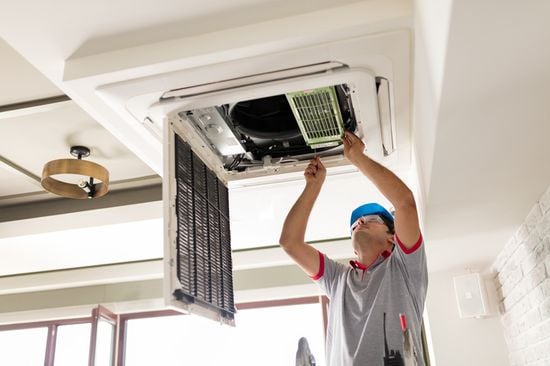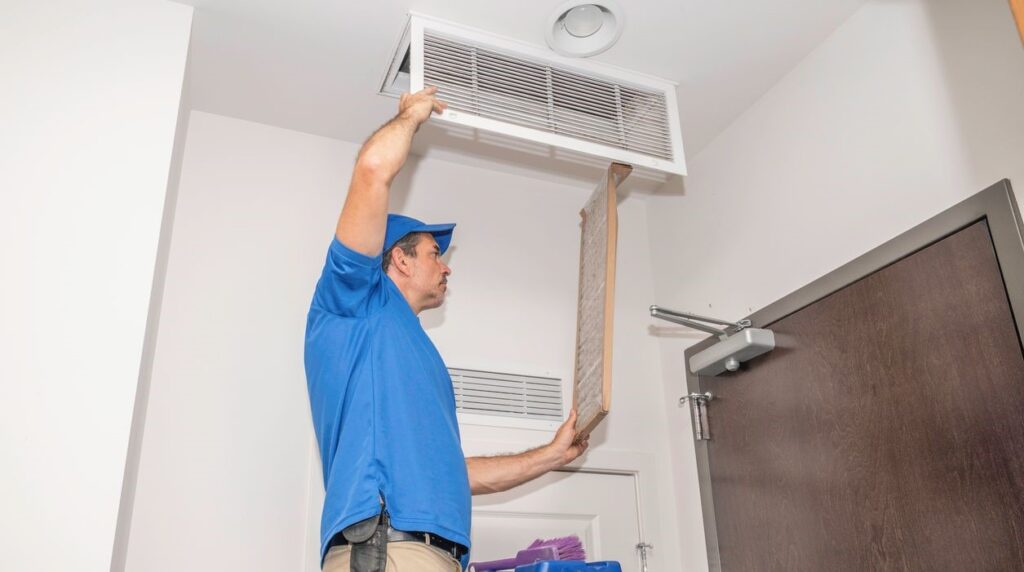When your air conditioning system starts to emit an unpleasant odor, it not only causes discomfort but also raises concerns about potential issues with the unit. Understanding the cost to fix when your air conditioning smells bad is crucial for homeowners and business owners alike. It’s essential to address these odors promptly to maintain a healthy and comfortable indoor environment.
In this article, we’ll explore the reasons why your air conditioning might emit bad smells, the potential costs involved in fixing these issues, and preventive measures to avoid unpleasant odors in the future.

Why Does My Air Conditioning Smell Bad?
Causes of Bad Odors
Several factors can contribute to bad smells coming from your air conditioning system. These can include:
- Mold and Mildew Growth: Moisture that accumulates in your air conditioning unit can lead to the growth of mold and mildew, which are common sources of musty smells. Musty Smell Symptoms
- Dirty Air Filters: When air filters become clogged with dirt and debris, they can emit unpleasant odors.
- Dead Animals: Sometimes small animals such as rodents can get trapped in your HVAC system, leading to a foul odor when they decompose.
- Refrigerant Leaks: A chemical smell might indicate a refrigerant leak, which can be both smelly and hazardous.
- Electrical Issues: Burning smells may be a sign of electrical problems within the unit.
Identifying the Source
To effectively address the odor, it’s important to identify its source. This might involve inspecting the air conditioning unit, checking air filters, and reviewing HVAC system components. In some cases, professional diagnosis is required to pinpoint the exact cause of the smell.
How Much Does It Cost to Fix Bad Smells from Air Conditioning?
Factors Influencing Cost
The cost to fix bad smells from an air conditioning unit can vary based on several factors:
- Type of Odor: Different smells might require different solutions, affecting the cost.
- Extent of the Issue: Minor issues like replacing an air filter are less costly than addressing mold growth or electrical repairs.
- Professional Fees: Hiring a professional to diagnose and fix the issue usually incurs labor costs.
- Location: Costs can vary depending on your location and the availability of HVAC professionals.
Average Cost Estimates
While prices can vary widely, here are some average cost estimates for common solutions:
- Air Filter Replacement: $20 to $50
- Professional Cleaning: $100 to $300
- Mold Remediation: $500 to $3,000
- Refrigerant Leak Repair: $200 to $1,500
- Electrical Repairs: $150 to $500
For more detailed information, you can visit this resource on troubleshooting air conditioner odors.
Steps to Fix Bad Smells from Air Conditioning
DIY Solutions
For minor issues, there are several do-it-yourself solutions that might help:
- Replace Air Filters: Regularly changing air filters can prevent odors.
- Clean the Unit: Remove debris and clean coils to prevent mold growth.
- Check for Blockages: Ensure that vents and ducts are clear of obstructions.
When to Call a Professional
If the smell persists despite your efforts, it might be time to call a professional. They can conduct a thorough inspection and recommend appropriate solutions. For a step-by-step guide on when to seek professional help, refer to this guide.
Preventing Bad Smells in Air Conditioning
Regular Maintenance
Regular maintenance is key to preventing bad odors. This includes:
- Scheduled Cleaning: Regularly clean the unit and ducts.
- Annual Inspections: Have a professional inspect your system annually.
- Humidity Control: Use dehumidifiers to control indoor humidity levels.
Proper Ventilation
Ensure proper ventilation in areas around the HVAC system to prevent moisture buildup and mold growth. For more tips, check out this checklist on preventing odors in ducts.

FAQs
What causes the chemical smell from my air conditioner?
A chemical smell is often indicative of a refrigerant leak, which should be addressed by a professional.
Can I use air fresheners to mask the smell?
While air fresheners can temporarily mask odors, they do not address the root cause. It’s recommended to fix the underlying issue.
How often should I replace my air filter?
It’s advisable to replace your air filter every 1 to 3 months, depending on usage and the type of filter used.
Addressing air conditioning odors promptly ensures a comfortable and healthy environment while potentially saving on more costly repairs down the line.
For additional resources on dealing with HVAC odors, visit this site.
This article contains affiliate links. We may earn a commission at no extra cost to you.